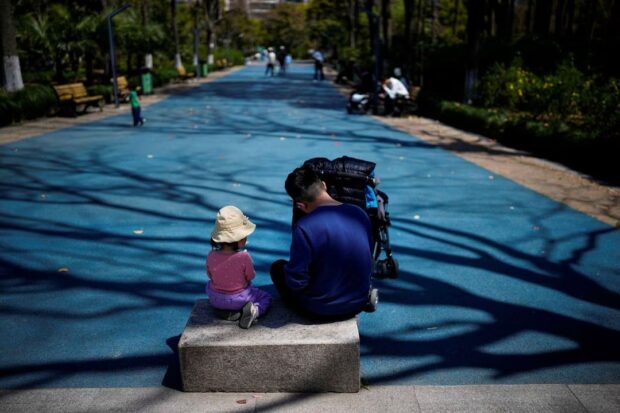
A little girl sits with her dad in a park in Shanghai, China, April 2, 2023. REUTERS/Aly Song/File Photo
SHANGHAI — Trip.com Group said on Friday it would pay 50,000 yuan ($6,897.69) to employees for each child they have starting July 1—the first such initiative by a large private company in China as the country struggles with an aging population.
The company, one of the world’s largest online travel agencies, with 400 million users, said it would pay a parental cash subsidy of 10,000 yuan annually for five years for every child born to its employees worldwide. The program will cost about 1 billion yuan, the company said.
“I have always suggested that the government give money to families with children, especially multiple children, to … help more young people fulfill their desire to have multiple children,” Trip.com executive chair James Liang said in a statement. “Companies can also play a role within their own capabilities to build a favorable fertility atmosphere.”
In the wake of a one-child policy that lasted from 1980 to 2015, demographers have warned that China will get old before it gets rich, as its workforce shrinks and indebted local governments spend more on their elderly population.
Falling birth rate
China’s birth rate last year fell to 6.77 births per 1,000 people, from 7.52 births in 2021, the lowest on record.
Authorities in 2021 said couples could have as many as three children, but even during the stay-at-home COVID-19 years couples have been reluctant to have babies.
Young people cite high childcare and education costs, low income, a weak social safety net and gender inequality, as discouraging factors.
Liang, who is also a demographer, published a book titled “Population Strategies: How Population Affects Economy and Innovation” this year and has suggested that 2 percent of China’s gross domestic product should be put toward encouraging fertility.
READ: Cash incentive pushed for China baby boom